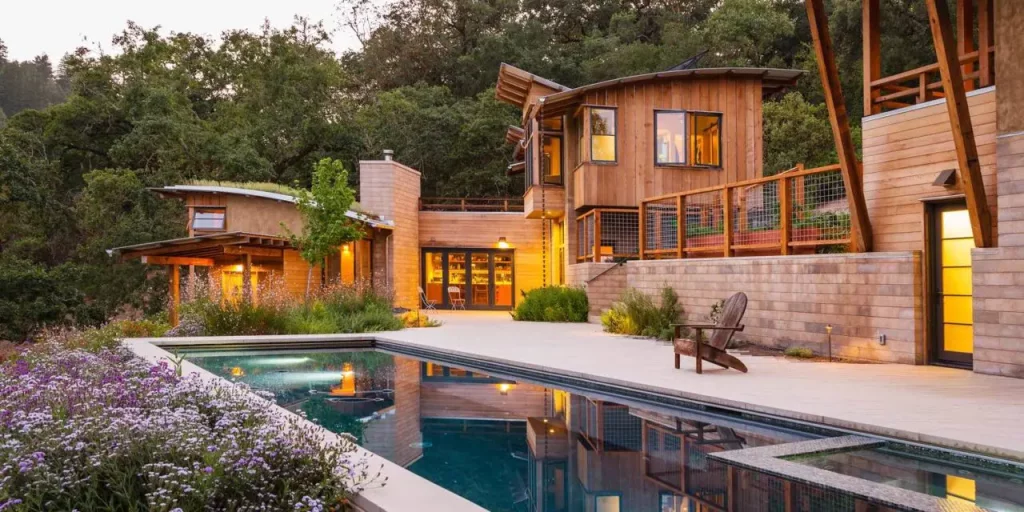As the world increasingly focuses on sustainability, eco-friendly living has moved from a niche interest to a global priority. This shift toward environmental consciousness reshapes how we think about where and how we live. And perhaps a surprising twist in this green revolution is the rise of manufactured homes.
Known for their efficiency and lower environmental impact, manufactured homes offer a promising alternative to traditional construction methods.
What Makes Manufactured Homes Eco-Friendly?
Manufactured homes today are a far cry from the mobile homes of decades past, largely due to significant regulatory changes introduced in the 1970s. The U.S. Department of Housing and Urban Development (HUD) instituted the HUD Code in 1976, establishing federal standards for these homes’ construction, design, and performance. This change improved these homes’ quality and safety, resulting in a home that can last 50 years or more.
Today’s manufactured homes are designed and assembled in controlled factory environments. This construction method allows for precise material management and advanced planning, significantly reducing waste.
For instance, excess materials in a traditional stick-built home often result from over-ordering to account for potential mistakes or damages that occur from exposure to the elements. These excess materials frequently end up in landfills. In contrast, the factory setting for manufacturing homes allows for tighter inventory control and reuse or recycling of materials, such as wood and metal cut-offs, which might otherwise be discarded in site-built construction processes.
Moreover, the controlled environment minimizes the risk of material damage due to weather, ensuring the quantity of materials used is optimized. This conserves resources and reduces the building process’s environmental footprint.
Reduced Waste in Manufactured Home Construction
Reducing waste is a foundational element of the construction process for manufactured homes:
- Precision Engineering: Advanced software is used for precise measurements, minimizing offcuts and unused materials.
- Bulk Purchasing and Usage: Materials are bought in bulk and stored in optimal conditions, reducing leftovers and the need for frequent deliveries.
- Recycling Initiatives: Factories recycle scrap materials during the construction process, unlike traditional sites where materials often go to waste.
Integrating these practices, modular construction can dramatically decrease waste materials—such as timber, cardboard, plastics, and concrete—by up to 90% compared to traditional construction methods. This efficiency supports sustainability and enhances the overall affordability and quality of the homes.
Energy Efficiency and Sustainability in Manufactured Homes
The environmentally conscious approach of manufactured homes extends beyond their factory-based construction, incorporating features designed for long-term sustainability and energy efficiency.
Manufactured homes are typically equipped with:
- Improved Insulation: High-quality insulation in walls, flooring, and roofing helps maintain consistent indoor temperatures, reducing the need for continuous heating or cooling and reducing energy consumption by as much as 15%.
- Energy-Efficient Windows and Appliances: These homes often feature double or triple-glazed windows that keep heat in during winter and out during summer. Additionally, the appliances installed are usually Energy Star-rated, ensuring lower electricity and water usage.
In terms of materials, manufacturers of these homes increasingly opt for sustainable choices:
- Sustainable Materials: Floors may be made from renewable resources like bamboo, and paints used are low in volatile organic compounds (VOCs), enhancing indoor air quality and reducing environmental impact.
With these features, manufactured homes meet housing needs and promote energy conservation and environmental health.
Enhancing Eco-Friendliness Post-Purchase
Once homeowners settle into a manufactured home, there are several strategies they can adopt to minimize their environmental impact further and improve the eco-friendliness of their living space:
- Installing Solar Panels or Green Roofs: One of the most impactful ways to reduce a home’s carbon footprint is installing solar panels. These harness solar energy to power the home, significantly reducing reliance on non-renewable energy sources. Alternatively, green roofs covered with vegetation can improve insulation, reduce water runoff, and lower urban air temperatures.
- Using Rainwater Harvesting Systems: Homeowners can install systems to collect and store rainwater for landscaping, gardening, and even for use in toilets. This conserves water, reduces the burden on municipal water systems, and lowers water bills.
- Water-Efficient Fixtures and Appliances: Replacing standard fixtures with water-efficient models, such as low-flow showerheads, toilets, and faucets, and choosing Energy Star-rated dishwashers and washing machines, can greatly reduce water usage and the energy needed to heat that water.
- Opting for Energy-Efficient Lighting and Smart Home Technologies: LED lighting is more energy-efficient than traditional incandescent bulbs, lasting longer and using a fraction of the energy. Smart home technologies, such as thermostats, adjust the temperature based on usage patterns and occupancy. This can save you a pretty penny—up 8% on your electricity bill.
A Sustainable Future with Manufactured Homes
Choosing a manufactured home offers significant environmental benefits, from reduced construction waste to enhanced energy efficiency. These homes are crafted sustainably, helping homeowners lower their ecological footprint while enjoying modern conveniences.
Adopting eco-friendly housing solutions becomes increasingly important as we seek a more sustainable future. If you’re considering relocating, purchasing your first home, or finding a comfortable retirement option, be sure to check into manufactured homes.
These homes are more affordable and of higher quality than ever, but they also promote an upscale lifestyle that is kind to our planet. Consider making your next home a manufactured one—a smart choice for you and the earth.

